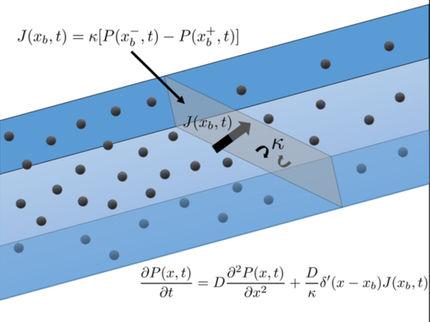How seven drivers of consumer behaviour will shape global markets over the next 10 years
Mintel 2030 Global Consumer Trends
As experts in what consumers want and why, Mintel is best suited to accurately predict the future of consumer behaviour and what that means for companies and brands. Announced today (5 November), Mintel is taking a bold approach with its predictions about the future of global consumer markets by incorporating seven key factors that drive consumer spending decisions:

Photo by Joshua Rawson-Harris on Unsplash
-
Wellbeing: Seeking physical and mental wellness.
Surroundings: Feeling connected to the external environment.
Technology: Finding solutions through technology in the physical and digital worlds.
Rights: Feeling respected, protected, and supported.
Identity: Understanding and expressing oneself and one’s place in society.
Value: Finding tangible, measurable benefits from investments.
Experiences: Seeking and discovering stimulation.
Here, Simon Moriarty, Director of Mintel Trends, EMEA, explores the seven drivers and how they will impact markets, brands and consumers over the next decade.
WELLBEING
“Wellbeing is no longer about simply wanting to look after oneself in broad terms, nor is it about the extremes of a total lifestyle change. Instead, a holistic approach is becoming a key motivator of consumer behaviour, underpinned by convenience, transparency, and value. Over the coming 10 years, there will be opportunities for brands to become wellbeing partners with customers. While the mass-market and ‘one-size-fits-all’ approach will still have value, we will see further adoption of bespoke solutions. Clean air and water will become selling points, while conscious movement and mindful exercise will become as important as physical fitness."
SURROUNDINGS
“The increased global population and climate crisis are forcing people to reduce their consumption, waste, and energy use. They are learning to share limited space more efficiently and to work more collaboratively. Better and more affordable telecommunication technology allows for flexible work conditions, as consumers increasingly become digital nomads. Over the next 10 years, social tensions will increase as competition for resources rises. This could result in greater stratification of society and failure to tackle the need for more efficient use of resources and better urban planning. There will be greater pressure on cities to continue to expand, encroaching into remaining wildernesses and rural farming areas, exacerbating the cost of producing food – making even basic products more expensive for most people.”
TECHNOLOGY
“Mobile technology continues to blur the lines between time, travel, and location for work, learning, and leisure. Elements of virtual and augmented reality (VR/AR) will revolutionise industries like tourism and entertainment, while virtual esports will rival physical sports in popularity. Over the coming decade, consumers will push back against cashless payments and fully unmanned stores, demanding more privacy and seeking more ‘human’ interaction. We’ll also see technologies developed to mitigate the effects of climate migration and displacement, amidst the broader challenges of economic inequality and an ageing society.”
RIGHTS
“‘Cancel culture’ is growing as consumers feel increasingly empowered to call out companies, brands, and people they disagree with, greatly shifting influence into the hands of the collective consumer. Youth activism will take the lead in drawing public awareness of causes and will push legislative leaders to develop and enact ideas to make real change. Meanwhile, a more human-centric approach to data is emerging, empowering people to control how their personal data is collected and shared. Consumers are beginning to realise the true value of this data and they are demanding more for it. Looking ahead, blockchain technology will change data ownership, empowering consumers to put the control back in their hands by determining who has access to their information online.”
IDENTITY
“Consumers are moving away from the rigid definitions of race, gender, and sexuality, and a movement is emerging toward more fluid, self-selected identities. But as the movement grows, rising feelings of loneliness and isolation are making people feel like they are, in fact, losing their identity. While people are more connected today than ever before, feelings of loneliness and isolation are on the rise and will reach epidemic proportions by 2030. Expect to see companies, brands, social organisations, and governments create technology-based solutions to help combat this. And as identities change, so too will socialising. In the future, people will increasingly be living with members of their ‘tribe’ – dictated by their mindsets and hobbies – rather than their family.”
VALUE
“The current era is one of excessive and unsustainable consumption. Social media’s ‘swipe up’ culture has perpetuated the chase for buying more and buying better. However, with climate change as one of the defining issues of modern society, consumers are taking a closer look at their own consumption habits. While consumers are in search of a more mindful approach to their spending, they also desire something that is authentic and unique to them. Expect to see a move towards slower, minimal consumerism that emphasises durability and functionality. Rapid urbanisation will shrink available space in the home, office, and shared environments, demanding consumers buy less ‘stuff’.”
EXPERIENCES
“While the demand for stimulation is not new, the role it plays in consumer decision-making is evolving. No longer should ‘the experiential’ be diminished as a mere marketing tool or a fad; instead, consumers are experiencing powerful emotional connections to brands that are creating a point of differentiation. Technology is driving experiences, but the constant connectivity is also causing demand for offline interactions to become more extreme and boundary-pushing. Looking ahead, collective experiences will gain more and more popularity. People will start to redefine what experiences they want as individuals. This will include the experience of doing nothing as people make more mindful decisions about what to do with their time.”






























































